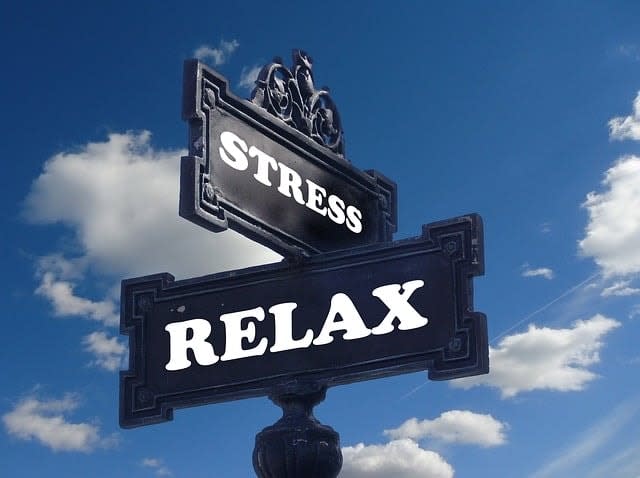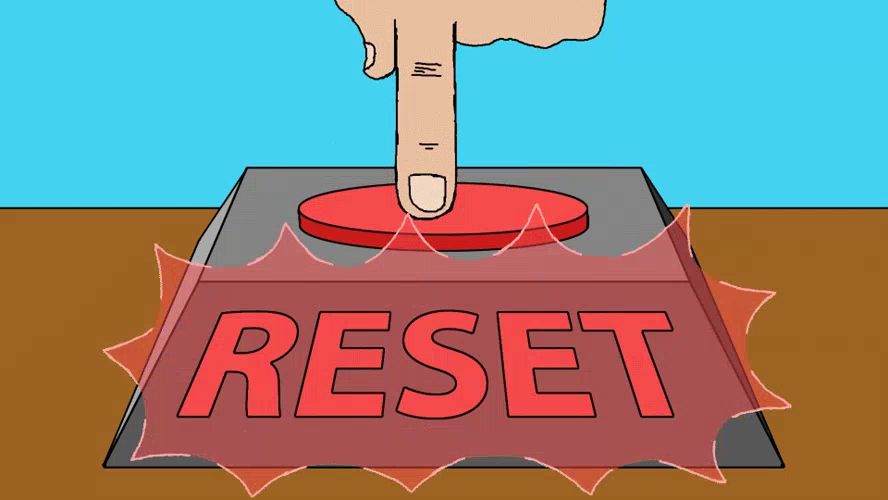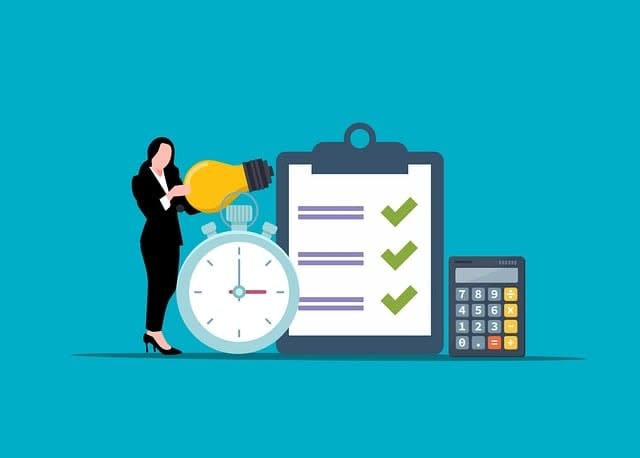How to Manage ADHD Without Medication: Proven Strategies for Adults
Aug 9, 2024
By Will Moore
As someone who grew up with undiagnosed Attention deficit hyperactivity disorder (ADHD), I know firsthand the challenges that come with this condition. From my early school days in Bethesda, MD, I felt like an outsider, struggling to fit in with my peers and keep up with academic demands. My ADHD symptoms manifested in ways that made me feel different and often misunderstood.
My inability to focus, coupled with impulsivity and hyperactivity, made it difficult to succeed academically and socially. By my senior year, I had hit what felt like rock bottom; I became suicidal.
My personal experience has shown me that while ADHD presents significant challenges, it’s possible to not only manage the condition but to thrive with it. What's more, I began to realize that some aspects of my ADHD, which I had long viewed as weaknesses, could actually be strengths in the right context. My ability to hyperfocus, for instance, became a powerful tool in my entrepreneurial ventures. The creativity that once made me feel different became the driving force behind innovative business ideas.
This realization culminated in the success of my food delivery startup, which eventually sold for $321 million. Through this journey, I learned that managing ADHD isn't about suppressing who you are but about channeling your unique traits in productive ways and developing strategies to navigate the challenges.
In this blog post, I'll share the insights and techniques I've gathered over the years for managing ADHD without medication. By implementing these strategies, individuals with ADHD can learn to manage their symptoms effectively and lead balanced, fulfilling lives.
Upgrades You'll Earn from This Blog:
Practical lifestyle modifications to improve focus and productivity.
Cognitive and behavioral strategies as part of ADHD treatment to manage symptoms.
Natural and sustainable approaches for long-term ADHD management.
How Does ADHD Look Like in Adults?
ADHD in adults can present unique challenges. Potential risk factors for ADHD include genetics and environmental influences. Common symptoms include difficulty maintaining focus, impulsivity, and hyperactivity, which can significantly impact daily life. Adults with ADHD may struggle with organizing tasks, managing time, and maintaining consistent productivity. These challenges can affect professional achievements, personal relationships, and overall life satisfaction.

Here is How You Can Manage ADHD Without Medication
Managing ADHD without medications involves implementing a comprehensive treatment plan that includes natural remedies, lifestyle changes, and therapeutic techniques. Key strategies include establishing routines, practicing mindfulness, regular exercise, optimizing sleep, maintaining a balanced diet, and using cognitive behavioral therapy techniques. Consistently applying these methods, along with creating supportive environments and utilizing time management tools, can help effectively manage ADHD symptoms without relying on medication.
Here are some effective approaches on how to manage ADHD without medication
1. Modify Your Lifestyle
Lifestyle modifications play a crucial role in managing ADHD symptoms. Implementing these changes can significantly improve attention, impulse control, and daily functioning.
Here is how you can modify your lifestyle:
Establish Routines and Structure
Studies have shown that structured routines can improve executive function in individuals with ADHD, offering a framework to manage daily demands better. They mitigate the chaos that ADHD often brings by offering external cues to guide daily activities, reduce impulsive distractions, and assist with transitions between tasks. In my college years, I discovered that having a set schedule for studying, exercising, and even socializing helped me manage my time more effectively and reduced the chaos that ADHD often brings.
Read More: How to Build Habits with ADHD
Manage Your Time
Effective time management is crucial for adults with ADHD. I learned to utilize tools like planners, calendars, and to-do lists to organize tasks and prioritize responsibilities. Breaking tasks into smaller, manageable steps made them less overwhelming. This strategy was particularly helpful when I was developing my food delivery startup, allowing me to tackle complex business challenges one step at a time.
Organize Your Environment
Organization reduces distractions and maintains order. Declutter your workspace and home environment to minimize visual and mental distractions. Implement organizational systems, such as labeled storage bins and color-coded files, to keep everything in its place and make it easier to find what you need. Organized environments lead to better task completion and reduced anxiety for individuals with ADHD.
Maintain Good Sleep Hygiene
Proper sleep hygiene is vital for reducing ADHD symptoms. Establish a regular sleep schedule by going to bed and waking up at the same time each day. Create a calming bedtime routine to signal to your body that it’s time to wind down. Limit screen time before bed and create a restful sleep environment by keeping the bedroom cool, dark, and quiet to improve sleep quality and reduce ADHD symptoms.
Exercise Regularly
Regular physical activity increases dopamine levels in the brain, improves attention, and reduces hyperactivity. I made exercise a non-negotiable part of my daily routine, which helped me channel excess energy and improve focus. Aim for at least 30 minutes of moderate exercise most days of the week. Activities like walking, jogging, yoga, and team sports can be particularly beneficial.
Eat a Healthy Diet to Reduce ADHD Symptoms
A balanced diet and proper nutrition are essential to treat ADHD naturally and can improve ADHD symptoms by influencing overall brain function. Eat a diet rich in fruits, vegetables, lean proteins, and whole grains. Avoid excessive sugar and processed foods, which can lead to energy crashes and exacerbate symptoms. Staying hydrated is also crucial for maintaining focus and cognitive function.

Read More: How To Get Back on Track with Diet?
2. Use Cognitive Behavioral Strategies
Managing ADHD without medication involves adopting various cognitive behavioral strategies that help manage ADHD. Compared to ADHD medications, these strategies can be equally effective for some individuals and come with fewer potential risks.
Here are some effective approaches:
Practice Cognitive Restructuring
Cognitive restructuring involves changing negative thought patterns that can exacerbate ADHD symptoms. Start by identifying negative thoughts and challenging their validity. Replace these with more positive and constructive thoughts. This technique can improve self-esteem and reduce anxiety, common issues for those with ADHD. Use techniques such as thought records to track and reframe negative thoughts into positive ones.
Incorporate Mindfulness and Meditation
Mindfulness and meditation can significantly improve focus and reduce stress. Regular mindfulness practice trains the brain to stay present and manage distractions more effectively. Techniques such as deep breathing, body scans, and mindful observation can increase attention span and improve emotional regulation.
Use Self-Monitoring Techniques
Self-monitoring involves tracking your behaviors and progress toward goals. This can be done through journaling, using tracking apps, or setting regular check-ins with a coach or therapist. By monitoring progress, you can identify patterns and make necessary adjustments to improve your management of ADHD symptoms. Tools like habit trackers or daily planners can be particularly useful.
3. Make Changes in Your Environment
Making thoughtful changes in your environment can significantly help in managing ADHD.
Here are some effective strategies:
Create an ADHD-Friendly Workspace
Designing a workspace that minimizes distractions is crucial for managing ADHD. Keep your workspace tidy and clutter-free. Use organizers, such as drawer dividers and labeled bins, to keep items in their designated places. Position your desk away from high-traffic areas and use noise-canceling headphones or white noise machines to block out distracting sounds. Consider using a minimalist approach to your workspace decor to reduce visual distractions.
Reduce Distractions at Home
Home environments can be full of distractions that make it challenging to focus. Establish specific areas for different activities, such as a dedicated space for work, relaxation, and hobbies. Implement household rules that minimize interruptions during work or study times. Using timers to manage work and break intervals can help maintain focus. Encourage family members to respect quiet times and create a supportive environment for concentration.
Optimize Lighting and Ergonomics
Proper lighting and ergonomics can significantly impact your ability to focus and stay comfortable. Use natural light where possible, and supplement with adjustable desk lamps to reduce eye strain. Ensure your chair and desk are set up to promote good posture. Ergonomic keyboards and mouse setups can reduce discomfort during extended periods of work. A comfortable and well-lit workspace can enhance productivity and reduce distractions.
Incorporate Visual and Auditory Cues
Using visual and auditory cues can help keep you on track. Sticky notes, bulletin boards, and whiteboards can serve as visual reminders of tasks and goals. Auditory cues, such as alarms and notifications, can prompt you to start or switch tasks. Setting up these cues strategically around your workspace can provide constant, gentle reminders to stay focused and organized.

4. Take Natural Supplements and Try Alternative Therapies
You can manage ADHD naturally through a variety of supplements and alternative therapies. While ADHD medication can be an effective component of treatment, some individuals prefer to explore natural supplements and holistic approaches as alternatives.
Balance Energy with Acupuncture
Acupuncture, an ancient Chinese medicine practice, involves inserting thin needles into specific points on the body to balance energy flow. This therapy can improve attention, reduce hyperactivity and impulsivity, and stimulate the nervous system to promote the release of neurotransmitters.
Boost Brain Function with Omega-3 Fatty Acids
Omega-3 fatty acids, found in fish oil, reduce ADHD symptoms such as inattention and hyperactivity by improving brain function and reducing inflammation. Incorporate omega-3-rich foods like salmon, walnuts, and flaxseeds into your diet, or take a high-quality fish oil supplement.
Enhance Focus with Herbal Remedies
Herbal remedies like ginkgo biloba and ginseng have been used for centuries to support cognitive function. Ginkgo biloba improves attention and memory, while ginseng enhances mental clarity and reduces fatigue. Take these herbs as supplements, teas, or extracts, but consult with a healthcare provider to ensure they are safe and appropriate for your needs.
Improve Cognitive Function with Neurofeedback
Neurofeedback involves training the brain to regulate its brainwaves through real-time feedback from an electroencephalogram (EEG). This therapy improves focus, reduces impulsivity, and enhances overall cognitive function. Neurofeedback is typically conducted by trained professionals and may require multiple sessions for optimal results.
Support Brain Health with Magnesium and Zinc Supplements
Magnesium and zinc are essential minerals that play a role in brain health and neurotransmitter function. Deficiencies in these minerals are linked to increased ADHD symptoms. Supplementing with magnesium and zinc improves attention, reduces hyperactivity, and supports overall cognitive function. Include foods rich in these minerals in your diet, like leafy greens, nuts, seeds, and whole grains.
5. Manage Stress Effectively
Managing stress is crucial for controlling ADHD symptoms. Here are effective techniques to help you stay calm and focused:
Practice Relaxation Exercises
Relaxation exercises, such as progressive muscle relaxation and guided imagery, reduce stress and promote a sense of calm. Progressive muscle relaxation involves tensing and then slowly relaxing each muscle group, while guided imagery uses visualization of peaceful scenes to reduce anxiety.
Use Breathing Techniques
Breathing exercises help regulate your nervous system and reduce stress. Techniques such as 4-7-8 breathing and diaphragmatic breathing are particularly effective. Deep breathing involves taking slow, deep breaths, holding for a few seconds, and then exhaling slowly.
Incorporate Yoga and Tai Chi
Yoga and tai chi combine physical movement with mindfulness and deep breathing, improving focus, reducing stress, and enhancing emotional regulation. Even short sessions of 10-15 minutes can make a significant difference.
Engage in Stress-Reducing Hobbies
Pursuing hobbies you enjoy is an excellent way to relieve stress and divert your mind from daily pressures. Activities like painting, gardening, reading, or playing a musical instrument provide a creative outlet and help you relax.

6. Build Social Support and Relationships
Building and maintaining strong social connections is crucial for managing ADHD. Here are strategies to help you improve your relationships and build a supportive network:
Build a Support Network
Surround yourself with friends, family, and peers who understand your challenges and can offer support and encouragement. Share your experiences and seek advice from those who have similar experiences. Consider joining support groups, either in person or online, to connect with others facing similar challenges. These groups provide a platform to share coping strategies and offer mutual support.
Communicate About ADHD with Loved Ones
Open and honest communication about your ADHD is essential. Explain your symptoms, how they affect your daily life, and what kind of support you need. This helps loved ones understand your behavior and reduces misunderstandings. Use "I" statements to express your needs and feelings, such as "I feel overwhelmed when there's too much noise, so I need a quiet space to work."
Improve Social Interactions
Social interactions can be challenging for individuals with ADHD. Practice active listening by focusing on the speaker, maintaining eye contact, and avoiding interruptions. Use reminders or prompts to stay on topic during conversations. Engage in activities that encourage social interaction, such as team sports, group hobbies, or volunteering. These activities provide opportunities to practice social skills in a supportive environment.
Develop Strategies for Relationship Challenges
ADHD can strain relationships due to impulsivity, forgetfulness, or inattentiveness. Develop strategies to address these challenges, such as setting reminders for important dates, creating routines for shared responsibilities, and practicing mindfulness to stay present during interactions. Couples therapy or family counseling can also be beneficial in addressing relationship issues and improving communication.
Read More: How to Be a Better Listener in a Relationship
7. Seek Professional Support
Seeking professional support can provide invaluable assistance in managing ADHD effectively.
Here’s how different types of professional support can help:
Work with an ADHD Coach
An ADHD coach specializes in helping individuals develop practical strategies to manage their symptoms. Coaches provide personalized guidance, helping you set and achieve goals, develop organizational skills, and improve time management. They offer regular check-ins and accountability to keep you on track. Coaching sessions can be conducted in person, over the phone, or via video calls, making it accessible regardless of your location.
As someone who has navigated the ups and downs of ADHD myself, I understand the importance of finding practical strategies to manage symptoms. My journey has taught me that having a dedicated professional guide can make all the difference.

If you're ready to transform your ADHD into a strength, consider booking a consultation with me to explore how personalized coaching can help you achieve your full potential.
Cognitive Behavioral Therapy (CBT)
CBT is a type of psychotherapy that helps individuals with ADHD identify and change negative thought patterns and behaviors. CBT can help improve self-esteem, reduce anxiety, and enhance problem-solving skills. Through regular sessions with a therapist, you can learn coping strategies and techniques to manage symptoms more effectively. CBT has been shown to be particularly effective for adults with ADHD.
Occupational Therapy
Occupational therapists help individuals develop skills necessary for daily living and working. For adults with ADHD, occupational therapy can focus on improving executive functioning, time management, and organizational skills. Therapists work with you to create personalized strategies that fit your lifestyle and needs, making it easier to manage tasks and responsibilities.
8. Workplace Strategies
Implementing effective strategies in the workplace can help manage ADHD symptoms and improve productivity. Here are some practical tips:
Understand Your Legal Rights
Familiarize yourself with your legal rights under the Americans with Disabilities Act (ADA). The ADA requires employers to provide reasonable accommodations for employees with disabilities, including ADHD. Accommodations might include flexible work hours, additional breaks, or the use of assistive technology. Understanding your rights can help you advocate for the support you need.
Implement Productivity Techniques
Use productivity techniques, such as the Pomodoro Technique, to manage your time and tasks effectively. The Pomodoro Technique involves working for a set period, typically 25 minutes, followed by a short break. This method helps maintain focus and reduces the risk of burnout. Other techniques, like task batching and prioritization, can also enhance productivity.
Create a Structured Work Environment
A structured work environment can minimize distractions and improve focus. Keep your workspace organized and free of clutter. Use tools like planners, to-do lists, and calendars to manage tasks and deadlines.
9. Manage Your Finances
Managing finances can be particularly challenging for adults with ADHD due to impulsivity, inattentiveness, and difficulty organizing.
Here are some strategies to help you manage your finances effectively:
Create a Budget
Establishing a budget helps you keep track of your income and expenses, ensuring you live within your means. Use budgeting apps like YNAB (You Need A Budget) to help you monitor your spending, set financial goals, and track progress.
Automate Bill Payments and Savings
Automate as many financial transactions as possible to avoid missed payments and late fees. Set up automatic bill payments and transfers to your savings account. This reduces the cognitive load of remembering payment dates and ensures consistent savings.
Track Your Spending
Regularly reviewing your spending helps you identify patterns and areas where you can cut back. Use financial tracking apps or maintain a spending journal to stay aware of your financial habits.
Deal with Impulsive Spending
Impulsivity can lead to overspending and financial instability. Implement strategies like waiting 24 hours before making non-essential purchases or setting spending limits. Involve a trusted friend or family member to help you stay accountable.
10. Regulate Your Emotions
Effective emotional regulation is crucial for adults with ADHD. Here are some strategies to help manage your emotions:
Identify Triggers
Understanding what triggers your emotional responses is the first step in managing them. Keep a journal to track situations that lead to strong emotional reactions and identify patterns.
Use Anger Management Techniques
If anger is a significant issue, explore anger management techniques. Strategies such as taking a timeout, practicing deep breathing, and engaging in physical activity can help you manage anger constructively.
11. Improve Time Perception and Management
Understanding and improving time perception can help you manage ADHD symptoms more effectively.

Here are some strategies:
Understand Time Blindness
Many adults with ADHD experience time blindness, making it difficult to perceive the passage of time accurately. Acknowledge this challenge and use tools to help manage it.
Improve Time Awareness
Use visual timers and alarms to keep track of time. Break tasks into smaller, timed segments to maintain focus and avoid hyperfocus. Set multiple alarms to remind you of important tasks and deadlines. Use countdown timers for tasks to create a sense of urgency and keep you on track.
12. Leverage ADHD Strengths
ADHD can come with unique strengths. Here are ways to leverage them effectively:
Identify Positive Traits
Recognize the positive traits associated with ADHD, such as creativity, high energy, and the ability to think outside the box. Embrace these strengths and find ways to leverage them in your personal and professional life.
Channel Hyperfocus Productively
Hyperfocus can be a double-edged sword. While it can lead to neglect of other tasks, it can also be harnessed for productivity. Use hyperfocus periods to tackle complex projects and deep work. I've found that aligning hyperfocus with my most challenging tasks can lead to extraordinary productivity. The key is creating an environment that minimizes distractions during these periods.
Leverage Creativity and Out-of-the-Box Thinking
ADHD often comes with a natural creativity. Use this to your advantage in problem-solving and brainstorming sessions. Engage in creative activities that stimulate your mind and provide an outlet for your ideas.
Conclusion: How to Manage ADHD Without Medication
The strategies outlined in this article are not just theoretical concepts – they are practical tools that have been tested and proven effective, both in my life and in the lives of countless others. Remember, the goal isn't to "cure" ADHD but to learn how to work with it effectively. It's about understanding your unique wiring and developing strategies that allow you to harness your strengths while managing your challenges.
Ready to take control of your ADHD and transform your life?
As someone who has navigated the challenges of ADHD firsthand, I understand the journey you’re on. Moore Momentum's life coaching approach is designed to help you utilize your strengths, develop effective strategies, and build sustainable habits for a fulfilling life.
What Will You Receive in This Coaching?
Personalized Coaching — Get one-on-one support and guidance tailored to your specific challenges and goals.
Proven Strategies — Implement effective techniques that have helped many adults with ADHD succeed.
Ongoing Support — Stay motivated and accountable with regular check-ins and continuous encouragement. Discover the difference personalized coaching can make in your life. Let’s work together to turn your ADHD into a strength and achieve your full potential.
Ready to get started? Book Your Consultation Today!
FAQs
How to help a child with ADHD without medication?
Help a child with ADHD by establishing a consistent routine, providing positive reinforcement, and engaging them in physical activities to channel their energy.
How to focus with ADHD without medication?
Focusing with ADHD without medication can be achieved through techniques like the Pomodoro method, using task management apps, and minimizing environmental distractions.
What do ADHD People Struggle With?
People with ADHD often struggle with inattention, hyperactivity, impulsivity, time management, organization, and maintaining focus on tasks.
How to Help a Child with ADHD Without Medication
Helping a child with ADHD without medication can involve behavioral therapy, establishing routines, providing clear and consistent instructions, using positive reinforcement, and ensuring a supportive environment.
What Helps with ADHD in Adults?
Adults with ADHD can benefit from cognitive-behavioral therapy, organizational tools, time management strategies, regular physical exercise, mindfulness practices, and possibly medication under a doctor's supervision.
